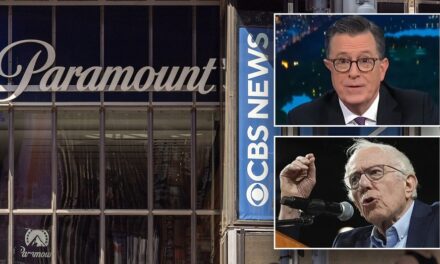Charlamagne tha God, a well-known media personality and host of The Breakfast Club, recently weighed in on the political landscape, expressing concerns about the Democratic Party’s current direction. His comments highlight what he perceives as a growing disconnect between Democratic leaders and the everyday Americans they aim to represent.
In a candid discussion, Charlamagne pointed to Vice President Kamala Harris’s perceived deficiencies in resonating with the average citizen. He suggested that the Democratic Party, through its leadership, is failing to effectively communicate and connect with the needs and concerns of the American public. This lack of connection, he argues, is becoming increasingly evident and could pose significant challenges for the party as it seeks to maintain its influence and voter base.
The landscape of American politics is often tumultuous, marked by shifting alliances and evolving priorities. In recent years, the Democratic Party has been at the center of numerous pivotal changes and debates, yet some critics feel these shifts are occurring without a true understanding of public sentiment. Charlamagne’s comments tap into a broader critique that has been leveled against the party – that it is sometimes out of sync with the realities faced by many Americans.
Charlamagne’s perspective is not isolated, as several political analysts and commentators have echoed similar concerns. They contend that while the Democratic Party has made significant strides in certain areas, it frequently falls short in addressing the everyday economic and social issues impacting their constituents. This perceived neglect may stem from a variety of factors, including leadership focus, policy priorities, or campaign strategies.
Vice President Harris, who has long been a prominent figure within the party, has faced scrutiny over her ability to engage and relate to everyday issues on the ground. While she has been commended for her trailblazing role as the first female vice president of both African and South Asian descent, her critics argue that there remains a substantial gap in perceiving and addressing the needs of the general populace.
This critique has ignited a conversation about how political leaders, particularly those in high-ranking positions, can recalibrate their approach to better reflect the concerns and aspirations of those they represent. For many, this involves a shift away from top-down policy-making to a more grassroots-oriented approach, one that actively involves community input and feedback.
Moreover, the ongoing socio-economic challenges exacerbated by the global pandemic, inflation, and other pressing issues have left many Americans feeling vulnerable. The expectation from leadership, particularly from a party that brands itself as the champion of the middle and working classes, is a response that is both compassionate and practical.
Charlamagne’s remarks serve as a reminder that political success in modern America depends not just on policy but on perception and empathy. For the Democratic Party, the challenge lies in bridging the gap between policy ideation and execution, ensuring that the narrative they promote resonates at the grassroots level.
To navigate these complexities, some strategists within the party are advocating for a more inclusive approach that emphasizes listening tours, town halls, and other engagment strategies to foster a deeper connection with voters. There is a growing call for leaders to not only address but also prioritize issues such as affordable healthcare, economic opportunity, social justice, and education – areas directly impacting the daily lives of many Americans.
As the nation moves closer to key upcoming electoral challenges, the ability of the Democratic Party to reconcile internal differences and refocus on core voter issues could significantly influence their successes or failures at the ballot box. The stakes are high, and the party’s capacity to adapt and evolve in response to feedback will likely determine its trajectory in the coming years.
In conclusion, Charlamagne tha God’s critique is a touchstone for broader debates around political representation and efficacy. As the Democrats gear up for future elections, listening to voices both within and outside their traditional base could be crucial in crafting a narrative and policy platform that resonates more broadly, thereby maintaining their edge in an increasingly competitive political environment.
































